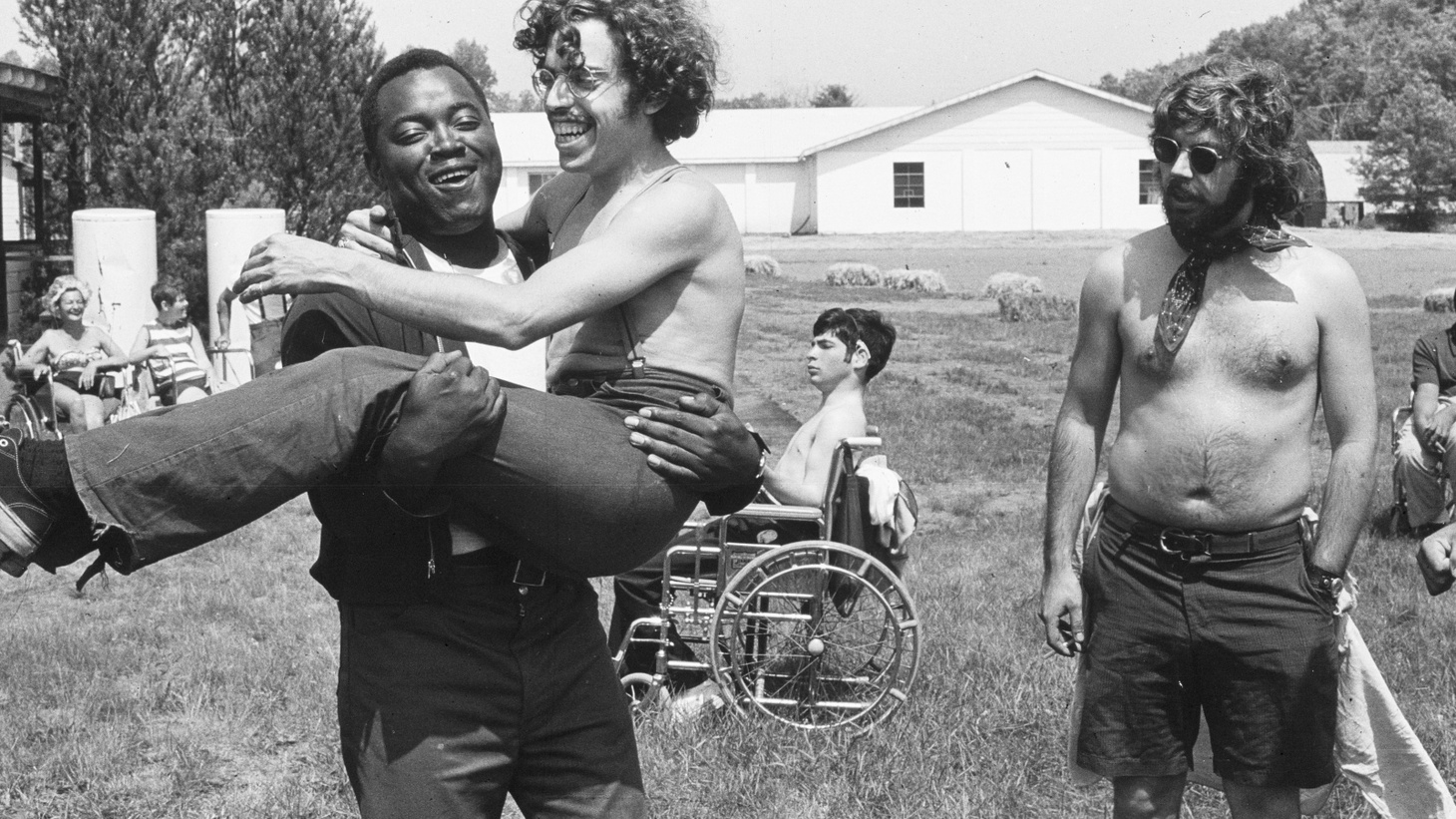And the Obamas are 2 for 2! Turns out they were born to be documentarian producers as well as civic leaders. While American Factory was a compelling, uneasy study of cultural understanding inside a corporation, Crip Camp is one of those rousing documentaries that thankfully shines a light on an amazing group of people underserved by the film industry, and society as a whole. Not that they need it; as you’ll see it’s easy to make a movie about something as wonderfully inspiring as these Camp Jened alumni.
What’s Camp Jened you ask? A highfalutin camp of future venture capitalists? The opposite actually: it was a camp created in the 1960s by a bunch of hippies to provide safe haven for the young and handicapped. There, they didn’t have to be disabled people, they could just be people first and foremost, enjoying a place where they were free to think and grow on their own. Those perspective altering summers were taken to heart by most of the campers like Judith Heumann, who embraced the camaraderie of the camp, and turned it into a campaign for equal rights for the disabled in the following decade.
The first half of this movie could simply be its own movie. I feel like there’s a host of stories to be uncovered and we’ve only scratched Camp Jened’s surface. But the stuff we get is pure gold. I laughed out loud more than a few times. Free of society’s trappings we see these people make all sorts of light hearted jokes at each others expense, like a cerebral palsy stricken woman who’s mom is mad she didn’t marry up to a polio stricken man, or a camp counselor digging holes to “teach cripples a lesson,” clearly in jest. Because we’re not used to disable people being, just, you know, people, normal situations that teens get into are funnier through context alone. Apparently humans discriminate, but crabs and gonorrhea do not, HA! While we’re hanging out with these kids, documentarians Nicole Newnham and James Lebrecht also lay the foundation for the movie’s second half. One of the joys of growing up is learning from perspectives other than your parents. At Jened, all these handicapped teens got a chance to speak their mind and learn from each other. Judith Heumann, for example learned how the black experience in the deep south was not dissimilar from a handicapped one, as both were parts of society that were preferred to be unseen and forgotten. Strong bonds form through personal conversations like that, and clearly left a lasting impression on many of the camp attendees.
The Camp Jened bond was so strong and so perspective altering that these people turned that progressive, crusading spirit into action. I keep mentioning Judith Heumann, because her camp experience taught her how to organize exceptionally well, making her perfect to lead the movement for equal rights for disabled people. The hippies at camp taught these people how to run a civil rights movement, and Judith took those lessons and mobilized with what she had, shutting down streets until laws got passed and engaging in lockins/hunger strikes until those laws got enforced. All of this was done with some folks who have severe sometimes dangerous physical handicaps, but it doesn’t matter, because Jened taught Judith and all of them to band together and fight for one another to get the respect they’ve long been neglected. The documentarians take that lighthearted spirit warming first half of the movie, and turn it into a rousing, damn inspiring story of personal belief leading to meaningful change, something everyone can rally behind.
I’ve been a long believe in the fact that changes in perspective can help people grow, and believe they can become something more than the life they’ve been given. Crip Camp is the living proof of such an experience, forever changing society because some handicapped youths went to a summer camp. Even my crappy local summer camp taught me the joys of science, leading to the career path I chose. Maybe that’s it: summer camps for everyone!

